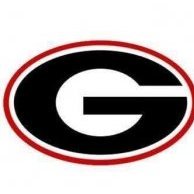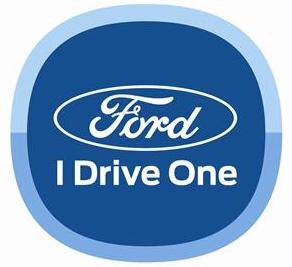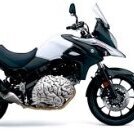All Activity
- Today
-
I believe EREVs are a good choice for larger vehicles, but for small, light, areo dynamic vehicles, that's basically the perfect use case for EVs. Apparently a lot of modern apartments are being built with charging stations in mind, or give tenants the option to have a charging station installed at their parking space if they pay for it. We'll see how that works out. It's also worth noting all future Ford EVs will have access to Tesla superchargers which are everywhere, and we're see a lot of charging stations pop up at work locations, restaurants, movie theaters, and shopping centers. Do you can pretty much charge your EV wherever you go. I'm not as concerned about the availability of chargers as much as I was 10 years ago.
-
I should listen to Mr Spock’s advice when he said "It would be impossible to discuss the subject without a common frame-of-reference". It’s same here which makes it seem like we are speaking different languages. If you actually believe your own words then ask Ford why their popular hybrid powertrain, as used in Maverick and various models, uses a 2.5L naturally-aspirated engine instead of replacing the hybrid’s engine with Ford’s 1.5L EB. And while at it, ask Toyota the same exact question given their popular hybrid powertrain installed in various vehicles also relies on a 2.5L NA engine instead of their 1.5L turbo. And don’t forget Honda too, though their improved hybrid powertrain has allowed use of smaller 2.0L NA engine.
- Yesterday
-
100% agree. I think they will succeed on their own when solid state batteries become common.
-
honestdon joined the community
-
2025 ford f250 xl, key type ignition equals no auto idle shut off, why
-
They can't do that. It's what people expect from the Blue Oval. It's in their name Fixed Or Repaired Daily
-
D3K2 joined the community
-
If there's a standard feature Ford should drop from their vehicle lineup, it's the "guaranteed recall feature".
-
Wrong. A hybrid still relies on engine power alone to propel the vehicle most of the time. To replace a 1.5eb requires a 2.5l NA engine. To replace a 2.0eb requires a 3.5L NA v6. Unless you’re willing to compromise performance with a much smaller NA engine. Ecoboosts use turbos to downsize the engine making it lighter and more efficient while still providing adequate power when needed. Even a 2.0L NA engine could be replaced with a 1.0 or 1.5eb. This whole push for “less complexity” without turbos is a red herring. The technology is reliable enough that it’s a non factor.
-
Let’s see the data. Nothing I said has anything to do with income or affordability. In fact it supports using cheaper engines for base models because most buyers don’t care. But you think bargain buyers want simplicity like a NA 2.5 over a 1.5 turbo and we’re trying to tell you they just don’t care. What matters is price, price, price, styling and mpg.
-
Another lovely headline, and not from some auto rag… Ford Breaks Annual Record for Safety Recalls Within First Six Months of Year https://www.wsj.com/business/autos/ford-safety-recall-record-df03416d
-
Well I care and notice the things because I'm a massive car enthusiast. But most buyers don't care about that. They want good design, good features, and good quality at an affordable price. Your typically buyer won't be able to tell the difference between a 1.5 and 2.0 engine, but they'll be able to tell the difference between a 1.5 engine and an EV.
-
CWB joined the community
-
Wow..if suppliers were allowed to sub out, that is a huge problem. I would hope Ford did due diligence when it came to picking a vendor..."what you see should be what you get". But good procedures costs money..for a supplier to cut corners unknown to Ford, unbelievable IMO.
-
If my memory serves me right, didn't Mulally have weekly meetings with key staff and status of prior meeting issues were reviewed? "What gets measured gets done" to use a worn out slogan. Anyone have an opinion of the recall history during his regime? Also my opinion, the difference when a guy with operations/engineering roots runs the show vs. a guy who got the job because he was a marketing "genius". Human nature IMO, a guy tends to concentrate on his area of expertise..no doubt Mulally and Farley came up via very different paths.
-
Agree, but they have had plenty of time to fix this and they keep making the same mistakes over and over again. They need some one or team as you say, to really look at what is wrong and fix the root problem(s)
-
Completely disagree based on data. Sales data doesn’t support your position for gasoline engines anyway, excluding diesel. You are not an “entry-level” buyer, and in my opinion are not objective regarding the needs of buyers who struggle daily and live from paycheck to paycheck. I don’t want to offend but many of the comments that have been expressed on this topic by various posters are condescending to “normal” people who still want to drive a new car, but have limited financial resources. Regardless, as I’ve predicted many times, the best known technical solution going forward at this time is to rely on electrification to a higher degree and on engine power to a lesser degree. This was true at least until CAFE was recently altered. Ford no doubt has a lot invested in EB technology but its future may be threatened by hybrid’s growth. I’m not criticizing EB advantages, just saying electrification may limit application. Below quote is from an article I happen to be reading comparing naturally-aspirated versus turbo engines. As they stated, turbos may become a moot point, especially for entry-level vehicles where economy matters most.
-
I’ve said it before but you don’t fix quality with a separate team. You fix it by changing your processes and by making quality a priority for compensation and promotion over cost and schedules. And you fire people who don’t comply. Suppliers should not be allowed to outsource without approval. But that also means you can’t squeeze suppliers for that last nickel. CE1 has the potential to fix some of it by having less complicated parts and doing more in house. Plus they’re already losing money with Blue providing the profits so less pressure to cut costs initially - but that obviously changes over time.
-
Yeah, plus luxury buyers who have higher income may have not qualified anyway because they exceeded upper income limit AFAIK, though I was told there was a way to circumvent rule (involved leasing but not sure). Glad to see tax credit eliminated regardless. I want EVs to succeed but on their own.
-
HUGE difference between full size truck buyers where performance makes a difference in towing/payload and family crossovers. There are no “slow” or really unreliable engines today and they all get good mpg. A small percentage have a preference for natural aspiration or more power but 90% just don’t care. The one exception are hybrids that get significantly better mpg. I have a 3.5eb F150, a 2.0eb Nautilus and a 2.5 turbo Boxster and they all average between 19 and 24 mpg and all should last 200k miles or more. When Nautilus dropped the 2.7 v6 in favor of a hybrid 2.0eb sales didn’t drop they went up. When Porsche switched from NA to turbos on the 718 cayman and boxster sales went up not down. The point is standard ICE engines in most regular passenger vehicles are now ubiquitous. Still matters somewhat for sports cars and trucks and a few high end luxury vehicles.
-
coupe3w started following Ford Recall Disaster
-
Don't worry the next new quality guy will fix this. Where have I heard this before?
-
Agree longer term, but for very short term, added cost of EREV is difficult to justify with fuel savings, so I expect many entry-level vehicle buyers who have to be cost conscious will continue to purchase regular ICE, or maybe step up to a hybrid. It’s really hard to say what will happen with “affordable” EVs long-term if CAFE changes essentially give manufacturers a green light to sell whatever they want. Next couple of years will be interesting to follow.
-
Funny that you think no one cares yet you say engines are rattling and buzzy, confirming you do care. In a negative way but you care nonetheless. I understand you’re all about designs and wish powertrains didn’t matter at all, but wishing doesn’t make it so. Some buyers do care about engines, whether justified or not, as proven recently by huge backlash against RAM for dropping Hemi. One could argue if these guys were idiots or not, but fact remains sales were adversely affected by lack of available powertrain choices. The newest shock to the system is relaxing CAFE penalties, so we may see if any manufacturer tries to capitalize by altering engine choices for some models.
-
They should be okay. Luxury vehicle buyers can probably eat the cost more than mainstream buyers. GM could also get a bit more aggressive with sales incentives if needed.








